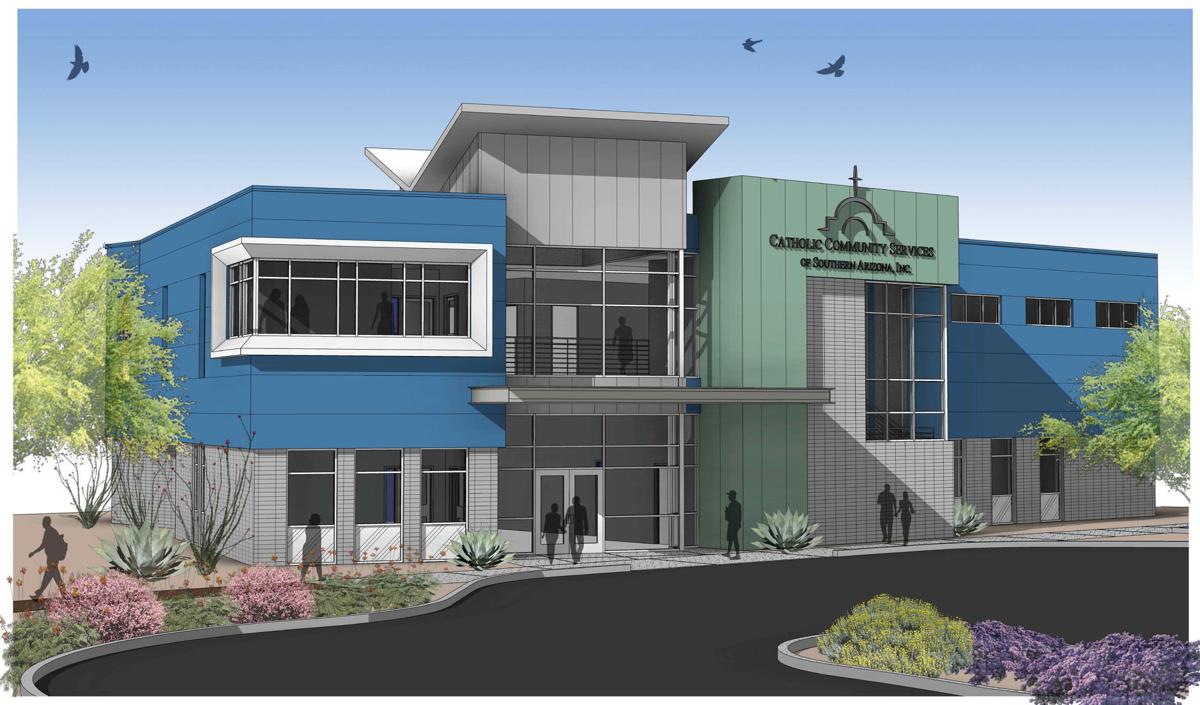A capital campaign is underway to build a $5.2 million medical respite center for the homeless on the campus of El Rio Cherrybell Health Center, it was announced Wednesday.
The respite center is for homeless men and women who need to recuperate from illnesses or injuries once they are released from a hospital.
The El Rio Cherrybell Health Center, 1230 S. Cherrybell Stravenue, is south of East 22nd Street and east of South Kino Parkway.
“Right now, we know that homeless people leaving hospitals and medical centers following surgery or inpatient care have no place to go to recover,” said Marguerite Harmon, chief executive officer of Catholic Community Services of Southern Arizona Inc., in a news release. The agency is an affiliated organization of the Roman Catholic Diocese of Tucson.
“Instead, people with need of a clean and nurturing environment return to the streets where even basic sanitation — soap and water, clean bedding and proper nutrition — may not be available,” said Harmon. “The result is that they will experience a poor recovery, secondary infections and possibly death.”
The respite center, which is a project of Catholic Community Services partnering with El Rio Health Center, is a needed facility for Tucson, said Mayor Jonathan Rothschild.
“We see homeless people for all different kinds of situations, but one of the most tragic is for people who have to go to the hospital because they are living on the street and need medical treatment, or get sick and have no place to go,” Rothschild said.
Jean Fedigan, executive director of Sister Jose Women’s Center, a nonprofit organization that provides services for homeless women, said, there are ill women who must leave the hospital because they do not require the level of care to stay.
“But, they need a place to continue their healing. They require extra help to get up and down, and out of bed,” said Fedigan. She said the respite center will save taxpayers money because it is much more costly to get reoccurring treatment in a hospital emergency room for such conditions as respiratory infections.
The respite center will provide services and care for those recovering from surgery, pneumonia and those who need assistance with medications and dietary requirements.
Harmon said $2.4 million of the needed construction costs have been raised from private philanthropy. Construction of a 15,000-square-foot, two-story building is expected to begin next spring and open in February 2021.
Organizations supporting the respite center include the Jewish Community Foundation of Southern Arizona, the Connie Hillman Family Foundation, Primavera Foundation, Gospel Rescue Mission, Casa de la Luz Hospice and the Department of Veterans Affairs.
Discussion for the respite center began years ago when Bishop Gerald F. Kicanas, who is now retired and bishop emeritus of the Roman Catholic Diocese of Tucson, began talks about follow-up health care for the homeless after hospitalization. A task force of leaders from shelters, veterans’ groups, health insurers and neighborhoods was created.
A study found that about 1,500 homeless adults each year did not receive the needed follow-up care. However, about 365 people are expected to seek care based on research, said Harmon. The average stay is projected to be 35 days as they recover.
About 80 percent of those receiving care will qualify for the state’s Medicaid health program, known as Arizona Health Care Cost Containment System, said Harmon.
Partnering agencies will work to put about 85 percent of those treated into permanent housing, Harmon said. Operation of the respite center, which will be named in the future, is projected at $2 million a year.
The center also will allow the homeless to bring their pets. The facility will have an outdoor play area and accommodations for the animals in the building. “We learned through research that many times homeless individuals will not seek help or shelter because they cannot bring their pets. We know that pets for many people are a source of comfort and can assist in healing,” said Harmon.





